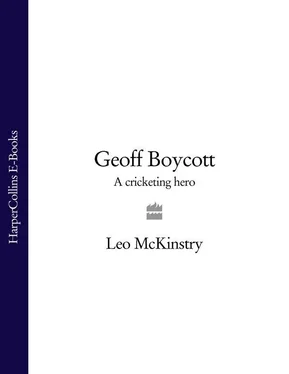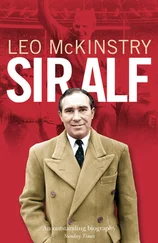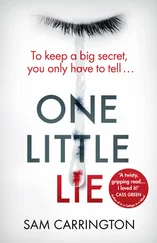All the contrasting flaws and virtues of Boycott have to be seen within the dominant theme of his life: his relentless pursuit of success in cricket. In his seminal book Rain Men (often described as cricket’s answer to Nick Hornby’s Fever Pitch ), Marcus Berkmann wrote of the hold that the game has over its enthusiasts: ‘At some cathartic moment in our stunted childhoods, this ridiculous sport inveigled itself into our consciousness like a virus and never left. In adulthood, you somehow expect to recover from all this. But it doesn’t happen. Your obsession remains as vivid as ever.’ Boycott, having been drawn in by street games in Fitzwilliam, Yorkshire, and by his uncle Algy’s enthusiasm at the local Ackworth club, never attempted to let go of this obsession once he had succumbed. Instead, he made cricket the driving force of his existence.
‘Cricket mirrors life, if you think about it. Life, death and change in the middle,’ said Boycott philosophically, in May 1999. Many would argue that Boycott’s approach to cricket mirrors his personality. The adjectives used to describe his batting could be applied to his character: cautious, tough, single-minded, intelligent. His fear of failure, which compelled him to eliminate all risks, also reflected his insecurity. In an interview on BBC 2 in 1978, Ray Illingworth said: ‘In technical terms, Geoff Boycott is the best batsman in the world today. His problem is his own insecurity. He’s never trusted people and I think this facet of his personality comes out in his batting style.’ Mark Nicholas, the Channel Four presenter, put it to me like this: ‘Every time he went to the crease he was batting for self-justification, not only as a cricketer but as a man.’ A duck, therefore, was not just a disaster in cricket terms, it was a blow to his self-worth.
Yet it must also be said that cricket helped to mould his character. For Boycott, unique among the great batsmen, was not endowed with phenomenal natural talent. No one who saw him in his early days with Barnsley, Leeds or the Yorkshire Colts would have believed that one day he would become a leading international cricketer. Boycott only reached the top through an astonishing effort of will and all-consuming dedication. And in that process, he had to be more ruthless than his contemporaries. Focusing every fibre of his being on his ambition, he eschewed almost everything else in life, marriage, family, friendships, a social life and all the other normal compromises of human existence. He was not interested in being popular or likeable, only in batting himself into the record books.
To many observers, it seemed that nothing and no one could stand in the way of Geoff Boycott, a disastrous attitude in a team sport. His total self-absorption made him careless of the needs and feelings of others. Tales of his rudeness and social ineptitude became legendary in the cricket world. David Brown said to me of his first tour to South Africa in 1964/65: ‘He thought of nothing else other than Geoffrey Boycott and the rest of the world could go lose itself. He treated everybody, public, press, the players, the same. He was intolerably rude.’ The outrage he caused was made all the greater by both his gift for ripe language, honed in the back-streets of Fitzwilliam and the dressing rooms of the professional cricket circuit, and the traditional Yorkshireman’s love of plain-speaking. But if Boycott had paid more attention to the usual niceties of relationships, I doubt that he would have become such a great player. Social acclaim had to be sacrificed to professional glory.
It would be wrong, though, to argue that Boycott’s social difficulties stemmed entirely from his cricket. After all, to this day, long after his retirement as a player and despite a new mellowness in his personality brought about by the ordeal of cancer, he still retains the capacity for brusqueness and irascibility. Mark Nicholas has worked all over the world with Boycott and is a great admirer of his talent as a broadcaster, but says that ‘he can be so rude to people that sometimes you just want to punch his lights out. It is rudeness born of bad manners.’ Even as a child and young man, he could be pigheaded and moody. One of his colleagues at the Ministry of Pensions in Barnsley, where Boycott worked before he signed full-time with Yorkshire, says that he was a loner who did not hesitate to tell other employees to ‘get stuffed’. So, parts of his character were already deeply ingrained before he became a professional.
Without going too far down the road of pop psychology, I suggest that Boycott’s close relationship with his mother must have been at the heart of the development of these traits. His mother’s unconditional support led him to develop a self-absorbed, naive and childlike outlook on life. This meant that, in some respects, he behaved as he felt. If he was in a bad mood, he did not attempt to cover it up. If he thought someone was ‘roobish’, he said so to their face. Like a child, he continually wanted his immediate demands fulfilled, and was furious when they weren’t. And, like a child, he clung to routine and stability and security – one reason he treasures the loyalty of friends and family.
Given the complex nature of his personality, it is hardly surprising that Geoff Boycott should have been such a controversial figure throughout four decades in our national summer sport. His has been a rollercoaster career, with Kipling’s twin imposters of triumph and disaster waiting to greet him at every turn. It is one of the most telling features of his life that each success has invariably been accompanied by some misfortune. Barely a year after his unique achievement of scoring his hundredth first-class century in a Test, he was sacked as Yorkshire captain and was fighting for his career at his beloved county. Only days after becoming the greatest run-scorer in the history of international cricket in 1982, he had to resign from the England tour of India, having appalled his fellow players with his conduct in Calcutta. His reinstatement as a Yorkshire player in 1984 after his sacking the year before only plunged the club deeper into turmoil. At the peak of his career in the nineties, he was brought low by Margaret Moore’s case against him. More recently, just as he was being rehabilitated in the British media, he contracted throat cancer, one of the most deadly forms of the disease.
Yet through all these tribulations, including the brutal experience of cancer, which meant that he lost three stone and could only be fed through a stomach pump, Boycott has displayed a remarkable fortitude. Lesser men would never have reached the heights he attained, nor would they have been able to cope with the catastrophic lows. Even if he has often been the author of his own misfortune, he has never surrendered, whether it be in taking on the most fearsome West Indies attack of all time at the age of forty or overcoming the sneers of critics to become best Yorkshire batsman of his generation. It was England’s finest captain of modern times, Mike Brearley, who wrote this tribute to Boycott during the Australian tour of 1978/79: ‘As I stood at the non-striker’s end and watched him avoid yet another hostile ball, I felt a wave of admiration for my partner, wiry, slight, dedicated, a lonely man doing a lonely job all these years. What was it that compelled him to prove himself again and again among his peers?’ In recent years, he has proved his courage once more in overcoming the twin challenges of the French court verdict and a life-threatening illness. Not for him the prolonged sulk or the retreat into seclusion. Instead, he has kept on fighting, to clear his name, to rebuild his career, and, above all, to save his life. Now, like some heroic knight emerging triumphant from an arduous quest, he is back where he belongs on mainstream television, pontificating, hectoring, wisecracking, and exulting about the game that has been his obsession since childhood. ‘You have to remember that he is in love with cricket, more than anything else. He would never knowingly do cricket down,’ says Mark Nicholas.
Читать дальше












